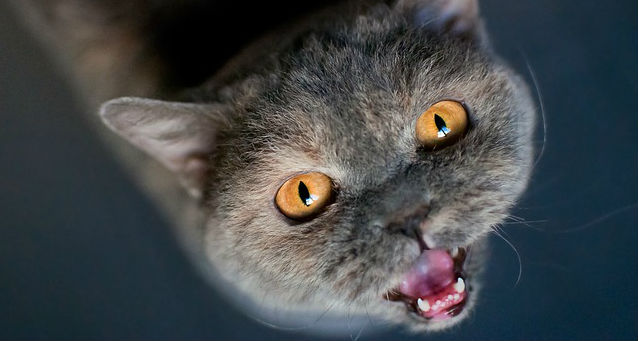Why do cats yowl at night?
Original Question: My mother passed last February and my sister has taken her 19-year-old cat which means she and my sister had to move to a new apartment. Up until last year this cat never made a sound not even a meow. We always thought she couldn’t talk, however now she is screaming a lot. My sister is afraid of the neighbours getting upset. Is there anything we can do about this? This cat has never even been yelled at and is very sweet - if we do yell for her to be quiet she gets very frightened. We don’t want to do anything drastic but might have to. Thanks for your help - we really care for this sweet cuddly old girl. - Joanne
 Apr 25, 2018
Apr 25, 2018
Hi Joanne,
I’m sorry for your recent loss. I want you to first realize that these behaviors may not be a grieving process, so don’t let this amplify your feelings of loss. There are numerous issues that could be at play here.
So my first recommendation would be to go ahead and visit your veterinarian.
There are a lot of possible things that could be going on here by your description. Some of them are very treatable and some of them may be more concerning. Actually, the symptoms you mention actually seem pretty manageable.
Right off the bat, you need to do blood work and a urinalysis. This could identify conditions that could be contributing to some of the symptoms. For example, cats that have hyperthyroidism will lose weight, yowl at night, and maintain their appetite and drinking which is sometimes increased. This is a disease that is easily treated and you would end up seeing rapid improvement.
A cat yowling at night will sometimes make these noises because of a medical disease but also anxiety or lack of stimulation. It’s very possible that this behavior has developed because there is a lack of stimulation that your mother gave which engaged your cat. So if there is not a medical cause for it after performing the blood work and urinalysis, then you could start using supplements or medications to treat anxiety. As our pets get older the world could become a scary your place. Their eyesight, hearing, strength and confidence in their movements can become reduced making them more fearful and maybe this is more of a cause than just the lack of your mother as a friend and companion.
Pain could also be present which can contribute to vocalization. This may be due to obesity, pain, arthritis or other medical conditions. By having your veterinarian perform a physical exam and diagnostics, they can determine what the cause might be. Again, these conditions have treatments that are effective.
This is why routine physical exams and diagnostics are so beneficial. You can find conditions that are developing far in advance of them creating quality-of-life issues of your pet. Keep in mind that as animals age, just like us, they require medical care. These are simply symptoms of things that could be going on that are very treatable. So a visit to your veterinarian and performing blood work and urinalysis, to start with, is your best next step. The sooner you address these concerns, the sooner you’ll feel better.
Thanks for your question and good luck.
Dr. Clayton Greenway


Disclaimer: healthcareforpets.com and its team of veterinarians and clinicians do not endorse any products, services, or recommended advice. All advice presented by our veterinarians, clinicians, tools, resources, etc is not meant to replace a regular physical exam and consultation with your primary veterinarian or other clinicians. We always encourage you to seek medical advice from your regular veterinarian.

